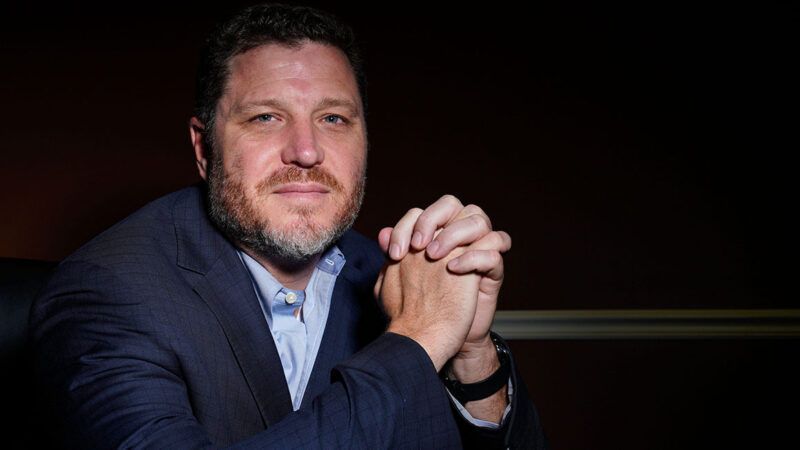This Florida Republican Is All in on Criminal Justice Reform
Former state lawmaker Jeff Brandes says the Florida Legislature has "ceded its role" to high-profile Gov. Ron DeSantis.

It would be more accurate to describe Jeff Brandes as a Republican from Florida than a Florida Republican. The former legislator—who left the state Senate in 2022 after term limits precluded another run—is a heterodox conservative who breaks with standard positions on such issues as criminal justice reform. Since returning to the private sector, Brandes has led the Florida Policy Project, an organization he founded to be a "policy bank" of research.
In October, Reason's Billy Binion spoke with Brandes by phone.
Q: One of your primary issue areas is criminal justice reform, which isn't typically a hill Republicans die on. How'd you get there?
A: I sat on the criminal justice committee back in 2014 and recognized pretty quickly that there was no real leadership on that issue statewide and that the prison system in Florida was circling the drain. I began to tour prisons, and the more I toured, the less I liked. I was often going to prisons that had 1,500 inmates and zero education opportunities, realizing that a vast majority of our prisons were understaffed. We had really created a Department of Warehousing and not a Department of Corrections. We weren't correcting behavior. We weren't getting better outcomes. So I started to work to fix that.
Q: How would you address those problems?
A: What if we were a state that implemented best practices? I think that's generally something Republicans and Democrats universally can agree on. It shouldn't be up for debate that we're going to follow the best practice. That's what led to me creating the Florida Policy Project.
The focus of our three early reports was the lowest-hanging fruit in criminal justice: First, what do we do with the returning citizens? They're getting out of prison anyway. We're not having a conversation about their sentencing. We're just talking about how to make them more successful when they leave. There's also a huge, growing elderly population. It's incredibly expensive—about two or three times as expensive as a young inmate—because of their health needs. So let's focus on a conversation about how we could be more successful with our elderly population. And finally veterans. We can argue about helping veterans solve their problems.
Q: Do you think there are any common misconceptions about the criminal justice system that hinder this work? What are the main roadblocks?
A: I think the main roadblock is most of your legislators, judges, and prosecutors have never visited a prison, period. They have no concept of what they're actually sentencing people to or where they're putting people. Most people believe that there are services inside of prisons to help people, and that simply isn't true. Most people don't understand what the day-to-day life is for inmates. Most people don't understand why having sufficient numbers of corrections officers is important and that if you staff it with a skeleton crew, the inmates end up running the place. And the way the inmates will run the place is by coercion and violence.
Q: Florida Gov. Ron DeSantis has made a name for himself in part by being tough on crime, characterizing the FIRST STEP Act—the 2018 federal bipartisan reform legislation—as a jailbreak law. How would you respond to that?
A: I think it's political. It's not data-informed. I don't think anyone can look at the data of the FIRST STEP Act and say that that has created any type of rise in crime or was a prison break. The data actually points in the absolute opposite direction.
Q: Florida is sometimes touted as the new model for Republicans. What do you think of the state of the party, and how did you navigate it while in office?
A: Let's not talk about the state of the Republican Party. Let's talk about the state of the Legislature, which is overwhelmingly Republican. What issue is the Legislature in Florida leading on? Anything? Clearly, we aren't leading on property insurance. Clearly, we're not leading on transportation. Clearly, we're not leading on affordable housing. Clearly, we're not leading on criminal justice policy. And because DeSantis has become such a polarizing and strong figure, the Legislature has largely leaned on him to provide all the solutions. It has largely ceded its role. There aren't intense policy debates on how to solve these tough problems. I have no problem with us touting how Republicans can win elections. The question is: and then what?
This interview has been condensed and edited for style and clarity.


Show Comments (85)